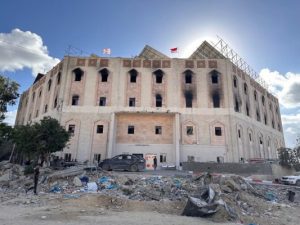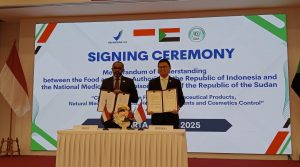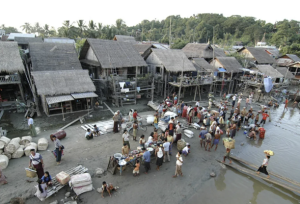
Palestinian farmers
harvest courgettes for local markets in Rafah, in the southern Gaza Strip on May 7, 2010. (Photo: Ma'an News Agency)" width="300" height="200" /> Palestinian farmers harvest courgettes for local markets in Rafah, in the southern Gaza Strip on May 7, 2010. (Photo: Ma’an News Agency)Bethlehem, 23 Jumadil Awwal 1436/14 March 2015 (MINA) – Vegetables grown by Palestinian farmers in Gaza entered Israel on Thursday for the first time since 2007, Israel’s Coordinator of the Government Activities in the Territories said.
The first phase will include 25 tons of tomatoes and five tons of eggplants, with future stages including a wider variety of vegetables and increasing in number to between 1,000 and 1,500 tons per month, with each ton valued at around 3,000 shekels ($745).
COGAT said it has “advanced the marketing of agricultural products from Gaza to Judea and Samaria in order to assist the Gazan economy.”, Ma’an News Agency quoted by Mi’raj Islamic News Agency (MINA) as reporting.
Three truckloads of tomatoes and aubergines were allowed through the Israeli-controlled Kerem Shalom goods crossing, Israeli rights group Gisha said in a statement — the first produce in eight years to leave the coastal enclave that is home to 1.8 million Palestinians.
Also Read: Israeli Forces Conduct Overnight Raids, Kidnap Palestinians in West Bank
Israel announced last week it would allow Gaza to export produce, both to help its farmers and to satisfy the religious needs of Israeli ultra-Orthodox Jews.
Every seventh year on the Jewish calendar, observant ultra-Orthodox cannot consume produce grown by Jews in Israel.
Before the Israeli siege imposed on Gaza following Palestinian political division in 2007, Gaza exported fruits, vegetables, flowers, fish, and other products to the West Bank.
Under the blockade, exports of agricultural produce from Gaza fell in 2014 to just 2.7 percent of the level before the blockade was imposed, according to a Feb. 2015 report by Oxfam.
Also Read: 47 Killed in Israeli Strikes on Aid Seekers and Shelters Across Gaza Strip
The blockade has also seen the import of agricultural products restricted, including fertilizers and building materials for irrigation and wells, desperately needed to rebuild Gaza’s infrastructure, much of which was destroyed during the Israeli assault on Gaza in the summer of 2014.
According to a 2013 American Near East Refugee Aid report, 46 percent of agricultural land in Gaza has been made inaccessible or unusable due to destruction caused by the “security buffer zone” as well as recent military conflicts.
Gaza’s economic activity declined by about 15 percent in 2015, according to a report released by the IMF linking the decline to Israel’s harsh bombing and shelling of the coastal enclave and slow progress on rebuilding. (T/P010/P3)
Mi’raj Islamic News Agency (MINA)
Also Read: 40,000 Palestinians Defy Israeli Restrictions to Pray at Al-Aqsa Mosque


























![MUI Chairman for Foreign Relations and International Cooperation, Sudarnoto Abdul Hakim (center) at the One Million Women for Gaza Press Conference entitled "Women Boycott Pro-Israel Products" held at the Swiss-Belinn Cawang Hotel, East Jakarta, Thursday (3/7/2025). [Photo: Arina/MINA]](https://en.minanews.net/wp-content/uploads/2025/07/20250703_144042-scaled-1-300x225.jpg)





 Mina Indonesia
Mina Indonesia Mina Arabic
Mina Arabic